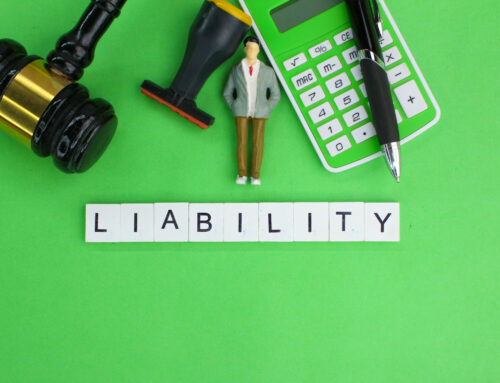Have you or a loved one undergone any medical operation? Let’s hope the recovery is going smoothly. After all, competent healthcare professionals provide you with your medical needs to keep you healthy. However, what happens when someone from the medical community does more harm than good due to a medical error? Then you have a case of medical malpractice on hand.
What’s Medical Malpractice?
It’s when healthcare providers, be it a medical professional or pharmacist, neglect their duty and fail to keep the standards of care they should provide and give you a substandard service. This negligent act causes injury towards you or a person, causing severe effects like a serious injury, disability, income loss, additional expenses for medicines, procedures, or treatments to address the injury.
What are the common causes of medical malpractices?
Here are some of the common medical malpractice cases deal with:
- Failure to diagnose or misdiagnosis of diseases especially if fatal when undetected like cancer, stroke, etc.
- Non-disclosure or omission of risks when explaining what happens when you undergo a procedure
- Medication errors (wrong prescription or dosage given)
- Birth injury
- Incorrect administration of anesthesia
- Surgical error/s
- Improper treatment or medical procedures
Can I file for a Personal Injury case due to medical malpractice?
 If you believe that you or a loved one is a victim of medical malpractice, you may file for a personal injury case for you to be compensated for economic and non-economic damages caused by medical negligence. However, before filing a case, it’s recommended to consult the doctor first as they may provide services or refer you to other doctors who can address your injury. If you already consulted your doctor and nothing still happens, you may need a medical malpractice lawyer to guide you with your case.
If you believe that you or a loved one is a victim of medical malpractice, you may file for a personal injury case for you to be compensated for economic and non-economic damages caused by medical negligence. However, before filing a case, it’s recommended to consult the doctor first as they may provide services or refer you to other doctors who can address your injury. If you already consulted your doctor and nothing still happens, you may need a medical malpractice lawyer to guide you with your case.
What happens when I decide to pursue a case?
You may contact the licensing board to call the attention of the doctor or the institution. They may also guide you on your next steps. In most states, when filing a lawsuit against the medical provider, a certificate of merit is required to show that another medical professional has reviewed your records. They should also signify that you did not receive the healthcare that adheres to the standard of care or you received an incorrect medical procedure or prescription. Your medical malpractice lawyer can assist you in filing for this.
There are instances where the doctor admits that he or she is liable for your injury. In this case, your case will not proceed. However, if your doctor denied that he or she committed negligence on his or her part, the trial shall proceed and you will have to prove that medical malpractice did occur.
What should I prove when filing?
There are some things you must prove for your claim to be considered valid. You must prove that
- You’re under the care of the medical professional in question (e.g. patient of the doctor or customer of the pharmacy). It is to establish that the person or institution is the one to be held accountable for the malpractice. You may present a prescription or any test result signed by the doctor, or receipt of the medicine you bought from the pharmacy.
- The care you received from the medical professional or institution failed to be on par with the medical standards, causing you harm. This could be proven with the help of an expert witness, usually other medical experts.
- The injury you are currently experiencing is caused by malpractice and not by other medical issues or other pre-existing diseases.
You must also present proof that the negligence did affect you in several aspects like:
- Physically – though hardly disputable, especially when the procedure is done externally, you must be able to show proof that the malpractice has affected your body.
- Financially – Additional expenses for medical bills due to procedures and medicine are also huge evidence. Your loss of the capability to create more income would also fall under this category.
What can I get from filing a case due to Medical Malpractice?
When the medical provider admits to their faults or the verdict found them guilty, you will receive compensation to recover economic losses such as expenses caused by the additional procedures or medications, lost income due to being hospitalized, even the earning capability due to the injury. Non-economic damages like the emotional pain and suffering the injury has caused you and your loved ones can also be compensated. Being unable to return to your usual lifestyle due to the injury also counts as non-economic damage, especially when you rely on the affected body part for your hobbies (e.g. legs for dancers or runners, hands for pianists, etc.).
What should I keep in mind when filing?
If you’re from West Virginia, you might want to remember these when filing for a personal injury case:
- The statute of limitations they use is two years. Meaning that you have to file for a personal injury case two years after the date of injury or the discovery of the injury. For victims ten years old or younger, a case must be filed before their twelfth birthday or within two years, whichever of the two is longer in duration.
- Unlike economic losses, The Tort Reform limits how much compensation for non-economic damages you can receive. Particularly, in West Virginia, you can receive a maximum of $250,000 as compensation. Some special cases may receive $500,000 due to their severity.
- It is required to present expert testimony. This should come from expert witnesses that specialize in the same field as the defendant.
Ghaphery Law Offices, PLLC can assist you with your concerns with medical malpractices and personal injury with a free consultation. Contact our law firm today and let our attorney evaluate and help you to assess your case.






